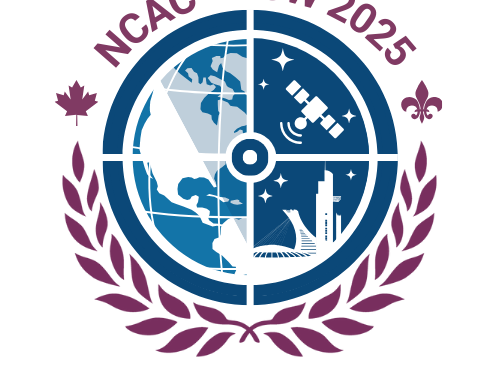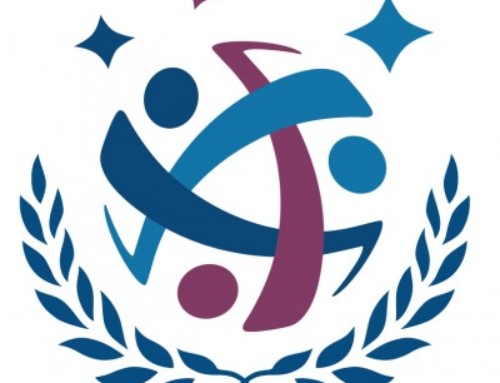Thanks to the generous donation of an SGAC Alumnus, SGAC is pleased to announce the 10 winners of the Nebula Award! The winners will get the opportunity to attend the 21st Space Generation Congress (28 – 30 September 2023) and the 74th International Astronautical Congress (2 – 6 October 2023) held in Baku, Azerbaijan.
Congratulations to all winners!
ANUJA SHRESTHA (NEPAL)
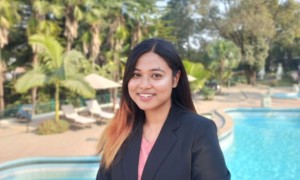
I completed my bachelor’s degree in Mechanical Engineering from Kathmandu University in 2022. My space journey started when I joined Antarikchya Pratisthan Nepal(APN)[Nepal Space Foundation] as an intern. Here, I learned about CubeSats, and got hands-on Satellite operation training by collecting on-orbit data of Nepal’s First satellite; NepaliSat-1 using a ground station at Nepal Academy of Science and Technology (NAST). I am currently working as Satellite Research Fellow at Antarikchya Pratisthan Nepal, where I work as Deputy Project Manager and mentor 9 high school students as part of Project MUNAL, Nepal’s 1st High School Satellite Project. In Project MUNAL, I handle the main mission of Project MUNAL; Camera mission consisting of two cameras, and also been involved in structural integration as well. I work as a Systems Engineer of award-winning payload: APN_LoRa_Payload recognized under Access to Space for All Initiative: Payload Hosting Initiative (PHI) program by UNOOSA awarded in collaboration with MBRSC. This payload is being hosted by 12U CubeSat of MBRSC. Despite being non-space faring country, Nepal is actively seeking international opportunities in Space, with a focus on capacity building, knowledge sharing, and advancements in science and technology. I am also involved in Danfe Space Mission as Systems Engineer where Danfe Space Mission is a payload designed by Nepal for 3U CubeSat, MCPC, Thailand.
“I am thrilled to be chosen as one of the Nebula Awardees. Representing my country, Nepal, on a global platform is an incredible opportunity that fills me with joy. I am immensely grateful to SGAC for this award, as it allows me to share Nepal’s space exploration journey with the world.”
CAROLINA VELASCO (ECUADOR)
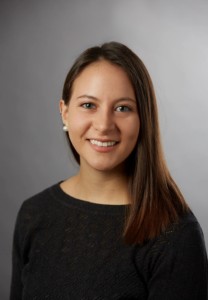
Carolina is a passionate Statistician with a keen interest in data and space. As the Chief Product Officer (CPO) of Astralintu Space Technologies, the first Ecuadorian new space company, she focuses on aligning service offerings, developing analytics, and setting a company-wide strategy. With over 6 years of experience in data analytics, Carolina has successfully applied her expertise to address challenges in various sectors, including technology, public health, and non-profit organizations. She firmly believes that through the power of data and product innovation we can unlock the benefits of space exploration and research for our planet.
“I am thrilled to be a part of the SGC 2023, where I will proudly represent and advocate for emerging space countries. It is an exciting opportunity to connect with like-minded individuals and organizations, and together, identify powerful avenues for collaboration that will shape the future of space exploration.”
DOLLY MANIC (PHILIPPINES)
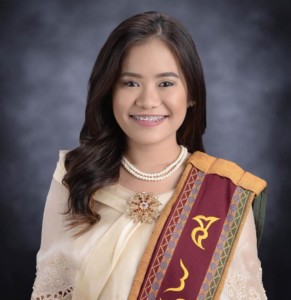
Dolly Manic is a researcher at the Marine Science Institute of the University of the Philippines. Having a bachelor’s degree in Biology, her field of work focuses on marine inorganic biogeochemistry and algal biotechnology. Pursuing a career in biology and space, she has been contributing to the SGAC since 2020 through local and regional events (e.g., Asia-Pacific SGWs). She has contributed to regional working groups to develop a policy framework for space medicine and biology research in the Asia-Pacific (AP) and to formulate recommendations for utilizing space technology for agriculture in the AP. She’s the newest addition to the AIOFAR, a project that was originally developed under the SGAC’s Space Technology for Earth Applications (STEA) project group to improve ocean farming using Artificial Intelligence and Earth Observation data. Moreover, she’s a visiting scholar at the Blue Marble Space Institute of Science, working on detection models for harmful algal blooms through satellite monitoring. She’s also a researcher under the Andromeda Program of the Deep Space Initiative, working on bioregenerative water recovery systems for lunar bases and habitats. Dolly is very passionate about promoting sustainable life on Earth and beyond. She’s very interested in Controlled Ecological Life Support Systems (CELSS) and circular bioeconomies. Dolly is an aspiring CELSS scientist who aims to develop life support systems for space explorations and to bring them back to Earth because she believes that solving for space is solving for Earth.
“I am beyond grateful to be a Nebula Award 2023 recipient. It has been a great privilege to be a part of an inspiring community of leaders, pioneers, and explorers at the SGAC. I am thrilled to attend this year’s SGC and IAC to further contribute to the goals of the SGAC and to the overall advancement of our species.”
HARRY AYUK-NGOJO TABI NDIP (CAMEROON)
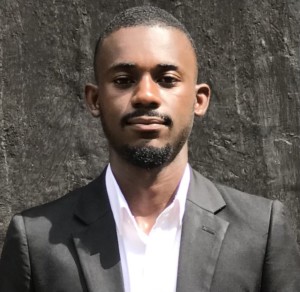
Harry A. Tabi Ndip is a final year Telecommunications Engineering student at the College of Technology, University of Buea passionate about building a sustainable community of Space and STEM enthusiasts in Cameroon. After getting into the university, he set out to expose kids and other highly motivated youths to space through The Aerospace Baby project and the Youths for Sustainable Space Development Community (Y4SSD) where he is the project lead. Harry was the youngest winner of the GMES and Africa 2023 startup development program for Aerospace Baby amongst 15 other startup founders and co-founders across Africa. He also led a team from the Y4SSD community that successfully named an exoplanet and its host star after participation in the IAU NameExo World 2022 competition on behalf of Cameroon. Demonstrating exceptional leadership and entrepreneurial skills, Harry started his journey as a mentee in the Space Generation Advisory Council (SGAC) and is now contributing as a member of the SGAC’s SSPG (small satellite project group). Recently, he was selected as a student member of the African Astronomical Society (AFAS), further enhancing his involvement in the field.
“I am very grateful to the SGAC to have been honored with the Nebula Award. This award means a lot to me because it is a huge encouragement to continue putting in efforts to contribute to the space community locally and to the SGAC”
MAHHAD NAYYER (PAKISTAN)
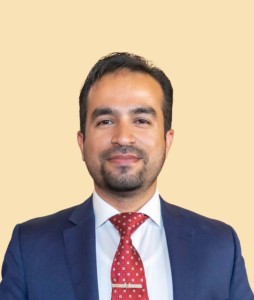
Mahhad Nayyer is currently pursuing a PhD in Aerospace Engineering at Purdue University as a Graduate Research Assistant. His work primarily focuses on the broader field of Space Domain Awareness (SDA) and space sustainability. Mahhad is particularly passionate about assessing the subjective and objective changes that emerging space economies can bring to the global Space Traffic Management (STM) framework and/or best practices. With his background in Astronautical Engineering from the U.S. Air Force Academy and a Master’s degree in Space Systems (SSA) from TU Graz, sponsored by ESA, Mahhad brings a wealth of diverse knowledge and ideas that are essential for ensuring space sustainability. Mahhad is an active member of the SGAC Space Safety and Sustainability Project Group. Currently, he is in the process of launching a series of webinars that will focus on the development of optical observatories for detecting, tracking, characterizing, post-processing, and determining the orbits of anthropogenic space objects. Mahhad hypothesizes that the development of a comprehensive global STM system or best practices should be based on observations from both ground-based and space-based active and passive sensors. These observations should contribute to a standardized yet decentralized cataloging system. He advocates that a sustainable STM system must be rigorous, modular, decentralized, standardized, and inclusive. Mahhad believes that achieving space sustainability depends on the inclusivity of all stakeholders, particularly the governments of emerging space economies. Mahhad loves developing astronomical observatories and strongly advocates for leveraging partnerships between academia and industry to crowdsource optical sensors.
“To say that I feel honoured on receiving this award is an understatement; along with pride and joy, I feel equally responsible to follow the legacy of the SGAC award winners and keep up the good work for the betterment of space and society. I will try my best.”
MARIA ALEJANDRA BOTERO BOTERO (COLOMBIA)
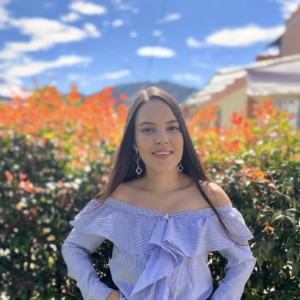
Maria Alejandra Botero Botero was born and raised in Abejorral, Antioquia, a small town in Colombia. She is a Mechanical Engineer with a minor in computational mechanics from Universidad EAFIT. She is currently in the last semester of Aerospace Engineering at Universidad de Antioquia, and pursuing a Master’s degree in Applied Physics at Universidad EAFIT. Maria Alejandra serves as the President of the Colombian Association of Women in Aerospace (ACMA), an organization that aims to inspire, empower, and propel women in the aerospace field, aiming to reduce the gender gap in the sector. She is also a member of the National Space Society Colombia and the SGAC Space Exploration Project Group.
She did an internship with Fundación Cydonia, a non-profit organization that designed and built the Analog Habitat for Simulated Space Exploration Colombia (HAdEES-C), the first analog station in the country, and was the Commander in two analog missions there. She has partaken in several research projects. Currently, she is working on the analysis and design of deployable structures based on origami.
“I still can’t believe that I am the fortunate recipient of this incredible opportunity to present my research in Baku. I am filled with awe and gratitude, knowing that with SGAC’s support, I can inspire others from similar backgrounds to chase their aspirations and build a path to the stars. Join me as we unlock new frontiers and shape a brighter future for women, Colombia, and the world.”
SINDHU BELKI (QATAR)
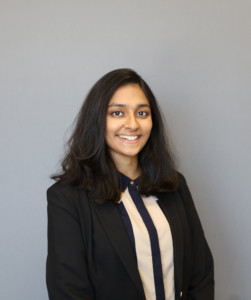
Sindhu Belki is a rising senior pursuing an undergraduate degree in Aerospace Engineering with minors in Mechanical Engineering and Applied Mathematics from The University of Alabama. She is Indian by origin but born and raised in Qatar. She was named as one of 16 esteemed individuals in the Zed Factor Fellowship Class of 2023, and is currently interning at AIA. Sindhu has served two terms as Project Manager and principal systems engineer of her university’s solid rocket team, which competes in the annual NASA Student Launch initiative. She is incredibly passionate about empowering underrepresented communities in the space industry, and plans to develop Qatar’s space industry by setting up a non-for-profit organization that trains students and young professionals. Sindhu enjoys DEI advocacy, Bharatanatyam, yoga and escape rooms. She is also a part of the organizing team for SGC 2023!
“As someone who has struggled to find role models in the space industry, SGAC has provided the community and resources for me to tap into, as well as a wonderful network that supports my dream of building Qatar’s space industry. I am elated and grateful to receive the Nebula Award, and I look forward to expanding my knowledge and network at SGC and IAC!”
TALHA NOOR (PAKISTAN)
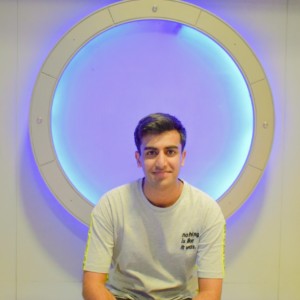
Talha Noor is a professional Pilot with specialized solo & aerobatics certifications on 04 different aircraft systems and 08 years of cumulative flying experience on Super Mushhak, Cessna T-37B, Aerospatiale Alouette III, and Leonardo AW-139. He is a post-graduate student of IR, a Bachelor of Aviation Sciences, and a qualified Flight Safety Officer (FSO) certified by CAA with PGD in Aviation Safety. Talha vigorously worked for space education during the pandemic-stricken world where he outreached 20000+ students during the World Space Week 21’, LSM 22′ and other space events, after which he was awarded a Telescope by IAU/SSVI’s “Telescopes for All” project 2022 for the contributions in space-ed activites during COVID-19. At the SGAC, He is serving as the NPoC of Pakistan, and envisions to see Pakistan transitioning into a space-faring nation. He also hopes to strengthen global alliances within the space industry through his work. Talha is currently working as a Delegate Team Member in the Organizing Team of the SGC 2023.
“I am incredibly humbled and grateful to be chosen as a winner of the Nebula Award and recipient of this prestigious scholarship by the SGAC. This recognition not only strengthens my commitment to serving my country’s interests but also empowers me to contribute significantly to the mission and work of the SGAC. […] I am honored to represent both Pakistan and SGAC, and I am excited about the positive impact we can make together.”
THANDO MATHE (ZIMBABWE)
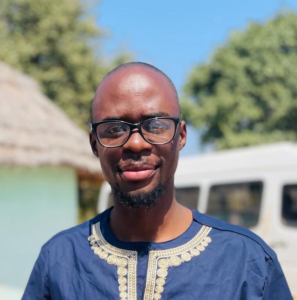
Thando Mathe is a young land tenure rights researcher and land information systems protégé from Zimbabwe. The Founding Researcher and Author at State of Tenure – an educational platform on land governance and land rights in Afrika. He is interested in exploring the nexus of space technology, space policy and governance for Afrika which drove him to become a member of SGAC. He served as the youngest Assistant GIS Manager at the Zimbabwe Land Commission leading information management efforts during the country’s national agricultural land audit which sought to improve the lives of over 300 000 farmers. He is enthusiastic about implementing fit for purpose land information systems to strengthen customary tenure systems. He has delivered a Masterclass at the UNECA’s Conference for Land Policy in Africa 2021, spoken at Zimbabwe Forestry Commission’s International Symposium, and at State of the Map Nigeria. Winning a scholarship from NELGA, he was certified in Political Economy of Land Governance. His career focus is leading sustainable policymaking in land governance across the public sector to upgrade the socio-economic status of Afrikan communities.
“Winning this award pushes me to explore what is possible in bringing often overlooked communities and issues to light binding land rights and policy from both a space and land perspective. It is truly a huge honour to be part of such bright minds and to experience the inclusive community of SGAC and partners!”
YUSUF ALQATTAN (BAHRAIN)
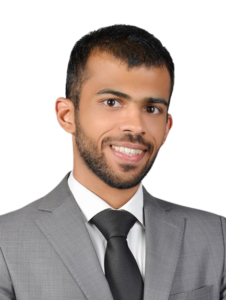
Yusuf is an engineer in the National Space Science Agency (NSSA) of Bahrain. He is currently working with the Bahrain Space Team in developing the first fully developed satellite in Bahrain named AlMunther which is considered a foundation stone for space and technology in Bahrain. Since Yusuf joined (NSSA), he is focusing on sharing his knowledge through research papers to ensure sustainable development. Yusuf believes it is his major role to bringing Bahrain to a position of international prominence in the field of space science. He received his Bachelor of Science in mechanical engineering from the University of Bahrain. One of his big accomplishments is winning the Nebula award of the Space Generation Advisory Council (SGAC). Yusuf’s biggest goal is to become part of contributing to Artemis projects since Bahrain is part of the Artemis Accords. In expanding his knowledge, he always enrolls in various courses in different fields including different programming, machine learning, and wireless communication. Yusuf constantly holds sessions and workshops to promote awareness in space science, technology, and applications in his home country. Apart from his job Yusuf takes joy in exercising and making digital art.
“Space Generation Advisory Council made it possible for me to publish my first ever research paper in the world’s leading space advocacy body. Thank you so much SGAC!”

